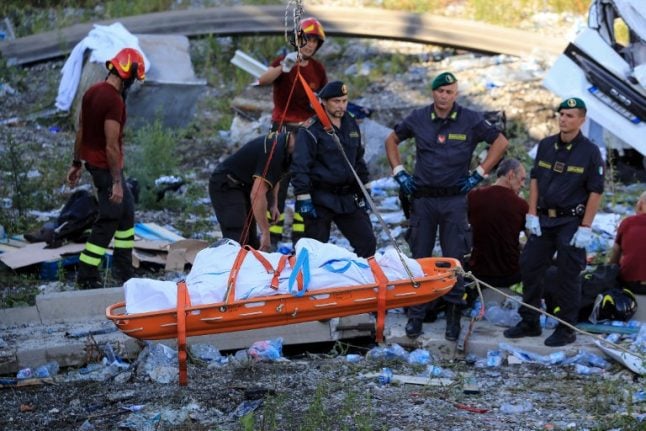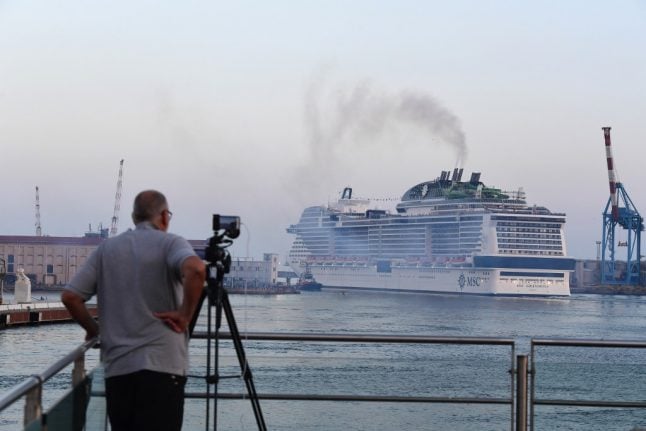The bridge
The Morandi viaduct, less than five kilometres (three miles) to the west of Genoa's old port, was built in the 1960s and completed in 1967.
The flyover of the A10 motorway, named after the architect who designed it, spanned railway lines, buildings and the Polcevera stream around 45 metres (over 140 feet) below.
Genoa's rugged terrain means that motorways that run through the city and the surrounding area are characterised by bridges and tunnels.
The collapse
A section of around 200 metres (650 feet) broke away at around noon (1000 GMT).
Autostrade, a highway operator controlled by Atlantia which runs much of Italy's motorway network, said it had been carrying out maintenance work on the bridge.
Regional weather services had issued a storm warning for the morning of the collapse and the national police force said on Twitter the disaster happened amid a “violent cloudburst”.
The victims
There were varying death tolls, with interior minister Salvini saying “around 30 people” had died.
A spokesman for the Civil Protection service meanwhile told reporters that 20 people were confirmed to have died, and 16 others wounded, including 10 seriously.
But officials warned the scale of the disaster was such that the toll was likely to rise.
The emergency response
Italy's national fire service said on Twitter that 200 of its emergency workers were involved in the rescue effort.
TV images showed rescue workers looking for other people under the rubble over six hours after the bridge crumbled.
The national police force told road users to avoid highways and the neighbouring areas.
The reaction
Salvini said that he would investigate and find out who was responsible for the collapse, because “it's not possible that in 2018 you can work and die in these conditions”.
France's President Emmanuel Macron said the country was ready to “offer all necessary support”.
The spokesman for German Chancellor Angela Merkel said her “thoughts like those of so many Germans, are with the victims and their families”.
The European Commission President Jean-Claude Juncker said: “I express my deepest sympathy and sincere condolences to the families and friends of those who have died and to the Italian people.”
Shares in Atlantia plunged on the Milan stock exchange after the collapse.



 Please whitelist us to continue reading.
Please whitelist us to continue reading.